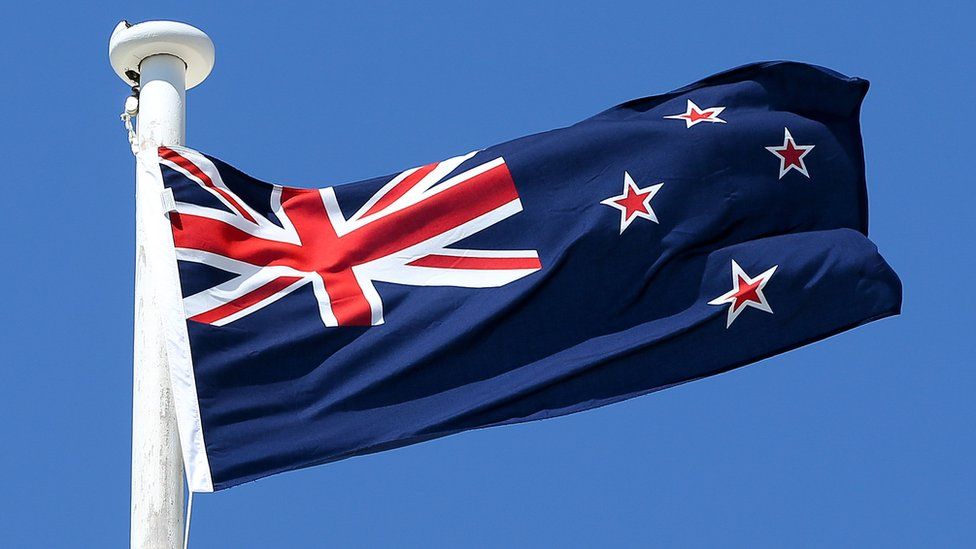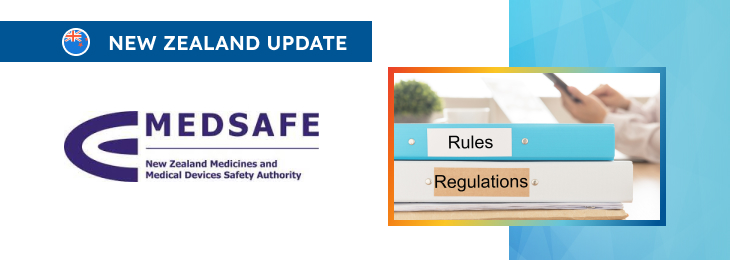The new article provides further clarifications on certain specific aspects associated with the regulatory requirements healthcare products, including medicines and medical devices, should comply with in order to be allowed for marketing and use in New Zealand.

Table of content
The Medicines and Medical Devices Safety Authority (Medsafe), New Zealand’s regulatory agency in the sphere of healthcare products, has published a guidance document dedicated to the regulation of therapeutic products allowed for marketing and use in the country. The document provides an overview of the applicable regulatory requirements, as well as additional clarifications and recommendations to be taken into consideration by medical device manufacturers and other parties involved in order to ensure compliance.
At the same time, the authority reserves the right to make changes to the guidelines and recommendations provided therein, should such changes be reasonably necessary to reflect corresponding amendments to the underlying legislation.
Xenotransplantation Procedures
As explained by the authority, in the context of Medicines legislation, xenotransplantation is recognized as a specified biotechnical procedure requiring authorization from the Minister of Health. Applications for approval must comprehensively address ethical, cultural, and spiritual concerns alongside ensuring the safety of both the recipient and the public.
The legislative framework for xenotransplantation is outlined in Part 7A of the Medicines Act, which details restrictions on specified biotechnical procedures.

Access to Unapproved Medicines
The relevant legislation also provides special regulatory mechanisms to facilitate access to unapproved medicines under certain circumstances.
- Clinical Trials: Section 30 of the Medicines Act allows for an exemption from standard product approval requirements for unapproved medicines used in clinical trials approved by the Director-General of Health. The application and approval process, managed by Medsafe, is detailed in the GRTPNZ: Regulatory approval and good clinical requirements guidelines available on the Medsafe website. This guideline also covers the ethics approval system overseen by the New Zealand Health and Disability Ethics Committee, which applies to all clinical trials conducted in the country. It is important to mention that such medicines are only accessible to patients enrolled in these approved clinical trials.
- Section 29 (case-specific use): Section 29 provides a mechanism for the supply of unapproved medicines upon request by a medical practitioner to treat a specific patient under their care. The supply process must be initiated by the medical practitioner, and the supplier is prohibited from advertising the availability of the medicine. Information about the supply and use of unapproved medicines, including requirements for importers and manufacturers, is available on the Medsafe website. Unapproved medicinal cannabis products meeting the minimum quality standards under the Misuse of Drugs Regulations 2019 can also be supplied through this provision.
- Section 25: Section 25 of the Medicines Act allows authorized prescribers to procure any medicine, whether approved or unapproved, for a particular patient in their care, provided they operate within their scope of practice. Additional information about the use of unapproved medicines is accessible on the Medsafe website.
Interfaces with Other Legislation
According to the guidance, certain therapeutic products must comply with additional legislative requirements from other statutes, as described below.
- Misuse of Drugs Act: Medicines that are also controlled drugs fall under the purview of both the Medicines Act and the Misuse of Drugs Act 1975, together with their respective regulations. In cases of conflict, the Misuse of Drugs legislation takes precedence, as stated in section 109(4) of the Medicines Act.
- Hazardous Substances and New Organisms Act: The Hazardous Substances and New Organisms Act 1996 (HSNO Act) and its associated regulations, administered by the Environmental Protection Authority (EPA), apply to some medicines. Most finished dose form medicines are exempt from the HSNO Act due to the Hazardous Substances (Minimum Degrees of Hazard) Regulations 2001. However, certain medicines, such as medical gases in large pressure containers and medicines containing live or attenuated viruses or bacteria classified as new organisms, must comply with the HSNO Act. Sponsors intending to distribute such new medicines must apply for consent from both Medsafe and the EPA. Coordination between these agencies ensures efficient administration of both Medicines and HSNO legislation. It is also stated that further information on the matter, together with the application procedures can be found on the EPA website.
- Consumer Legislation: Therapeutic products, being commercial articles, should also comply with relevant consumer legislation such as the Fair Trading Act 1986, administered by the Ministry of Business, Innovation and Employment and enforced by the Commerce Commission.
- Other Regulatory Interfaces: Importers of unprocessed plant or animal material should consult the Ministry for Primary Industries for applicable import standards. The New Zealand Customs Service can provide advice on commercial importation requirements. Additionally, some medical devices must meet standards imposed by other legislation before being legally supplied in New Zealand. More information is available on the Medical Devices – Legislation page on the Medsafe website.
Conclusion
In summary, the present guidance issued by Medsafe further describes the existing legal framework for healthcare products, paying attention not only to special but also to the general laws and regulations that are still applicable when it comes to healthcare products. The document provides an overview of the relevant regulatory provisions and highlights the key points to be considered.
How Can RegDesk Help?
RegDesk is an AI-powered Regulatory Information Management System that provides medical device companies with regulatory intelligence for over 120 markets worldwide. It can help you prepare and publish global applications, manage standards, run change assessments, and obtain real-time alerts on regulatory changes through a centralized platform. Global expansion has never been this simple.

